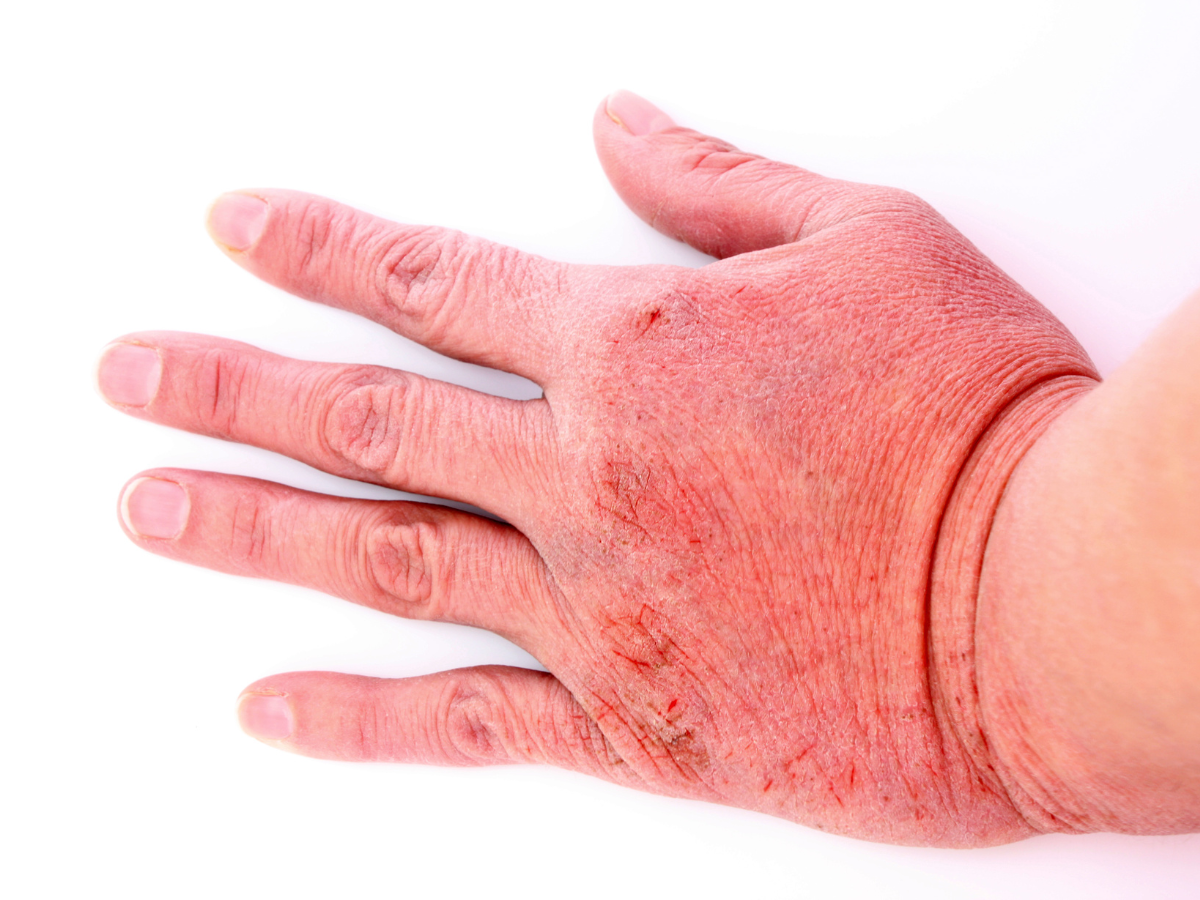Dry skin: What Are the Consequences

Dry skin is a usual problem that can have severe consequences if not treated properly. Learn about the causes and symptoms of dry skin and how to treat this condition properly.
What is dry skin?
It is a skin type that produces less sebum than normal skin. The sebaceous glands are responsible for secreting sebum, an oily substance that lubricates and waterproofs the skin. Less sebum means that the skin is not as well lubricated and does not have the same level of protection against environmental elements, which can lead to dryness, flaking, and irritation. Many factors can contribute to dry skin, including weather, genetics, medications, and certain skin conditions. People with dry skin often experience tightness, itching, redness, and flakes.
While there is no cure for dry skin, there are many ways to manage the condition and relieve symptoms. These include regular moisturizers, avoiding harsh cleansers and irritants, protecting the skin from the sun, and using humidifiers to add moisture to the air. People with dry skin can enjoy healthy and comfortable skin with proper care.
How to get yourself relieved from dry skin?
Fortunately, you can do a few simple and exceptional things to help relieve dry skin. First, make sure you’re drinking plenty of water. This will help to hydrate your skin from the inside out. Second, use mild soap when cleansing your skin. Harsh soaps can strip away natural oils, making dryness worse. Third, apply a moisturizer immediately after bathing.
This will aid lock in moisture and prevent your skin from drying. By following these simple tips, you can keep your dry skin under control and enjoy healthy, radiant skin all winter long.
Consequences of dry skin
There are seven main consequences of dry skin:
- Dehydration: When the skin is dry, it can lead to dehydration and cause the skin to appear dull and lifeless. Dry skin can also make wrinkles and fine lines more noticeable.
- Itchy and Irritated Skin: Dry skin is often itchy and irritated. Scratching can further damage the skin and lead to infection.
- Increased Susceptibility to Infection: Dry skin can crack and tear, providing an entry point for bacteria and other germs. This can lead to infection, which can be severe in some cases.
- Eczema: Eczema is a condition that causes the skin to become dry, itchy, and inflamed. It can be painful and uncomfortable, leading to cracking, bleeding, and infection if left untreated.
- Psoriasis: Psoriasis is a chronic condition that causes dry, scaly patches on the skin. In extreme cases, it can lead to joint pain and disability.
- Skin Cancer: Dry skin can increase the risk of developing skin cancer, especially if exposed to sunlight or other ultraviolet light sources.
- Accelerated aging: Dry skin can make you look older by contributing to the development of wrinkles and fine lines. It can also make your skin more prone to damage from sun exposure.
Conclusion
Dry skin is a common problem, but it can often be treated with simple changes to your routine. We hope this article has helped you better understand the causes of dry skin and how you can address them. Please consult with your doctor if you have any further questions or concerns. Thanks for reading!
References
- Augustin, M., Wilsmann‐Theis, D., Körber, A., Kerscher, M., Itschert, G., Dippel, M., & Staubach, P. (2019). Diagnosis and treatment of xerosis cutis – a position paper. JDDG: Journal Der Deutschen Dermatologischen Gesellschaft, 17(S7), 3–33. https://doi.org/10.1111/ddg.13906